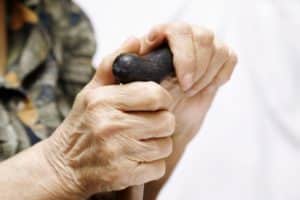

When an elderly family member moves into a nursing home, they are legally entitled to comfortable and safe living conditions. In addition, residents are also entitled to nutritious food and adequate water. At times, however, nursing homes do not provide adequate food and water and as a result, residents can suffer certain medical conditions that are caused by malnutrition and dehydration. In fact, malnutrition and dehydration can quickly evolve into serious and life threatening medical conditions. If you believe your family member may have been deprived of adequate food and water in a nursing home, here are some important things you need to know from a nursing home injury lawyer.
What Are Signs of Malnutrition For a Nursing Home Resident?
Negligence through malnutrition can occur in two ways: lack of sufficient food, or lack of nutritious food. Serving the wrong portion size can also lead to a low intake of nutritious food. Additionally, any dental issues or loss of appetite due to medication, can affect how much an elderly resident eats. It is the responsibility of the nursing home staff to monitor and ensure that each resident eats enough healthy food for their needs. Also, any resident who cannot self feed must receive the assistance required to eat. Nursing home staff are required to monitor food and water intake of their residents, especially if a resident is at risk of malnutrition or dehydration.
Malnutrition can occur in a variety of ways, but the symptoms are generally the same. Some of the most common signs of malnutrition include:
- Weight loss;
- Fatigue;
- Dizziness;
- Weakness and muscle loss;
- Mental decline and memory loss;
- Dry skin; and
- Confusion.
The effects of malnutrition can weaken and sicken elderly residents. When a nursing home resident experiences one or more of these symptoms, a resident’s health can decline quickly and drastically. As the resident becomes sicker, the resident will eat and drink even less, resulting in a potentially deadly cycle. As a result, it is important to identify and address this problem as soon as possible.
What are Signs of Dehydration For a Nursing Home Resident?
A person is dehydrated when they experience an excessive loss of bodily fluids. Dehydration can be caused in several ways. Sometimes it arises as a side effect from medication or illness, other times it can result from a nursing home’s failure to provide adequate fluids. Regardless of how it happens, a properly trained nursing home staff must evaluate the patient to determine whether there are any indicators that the resident is dehydrated. When there are indicators that the resident may be dehydrated, the nursing home’s staff must immediately address the problem. The most common symptoms for dehydration include:
- Thirst;
- Loss of appetite;
- Dry skin;
- Flushed face;
- Dark colored urine;
- Vomiting;
- Weakness and fatigue;
- Chills; and
- Dizziness
These symptoms can quickly become life-threatening, therefore, any elderly resident with these symptoms should seek medical assistance as soon as possible. Once a resident becomes dehydrated, other medical conditions can occur. These include a weakened immune system, worsened dementia, bedsores, pneumonia, and increased risk of infections.
Lawyers24-7.com | Ask Questions – Get Answers
If you have any questions concerning malnutrition, dehydration, and nursing home negligence, contact our experienced nursing home injury attorneys for more information by calling (800) 762-9300 or by email . You can also get started by simply filling out one of our case intake forms, and we will have one of our attorneys get right back to you.
You Might Also Be Interested In

